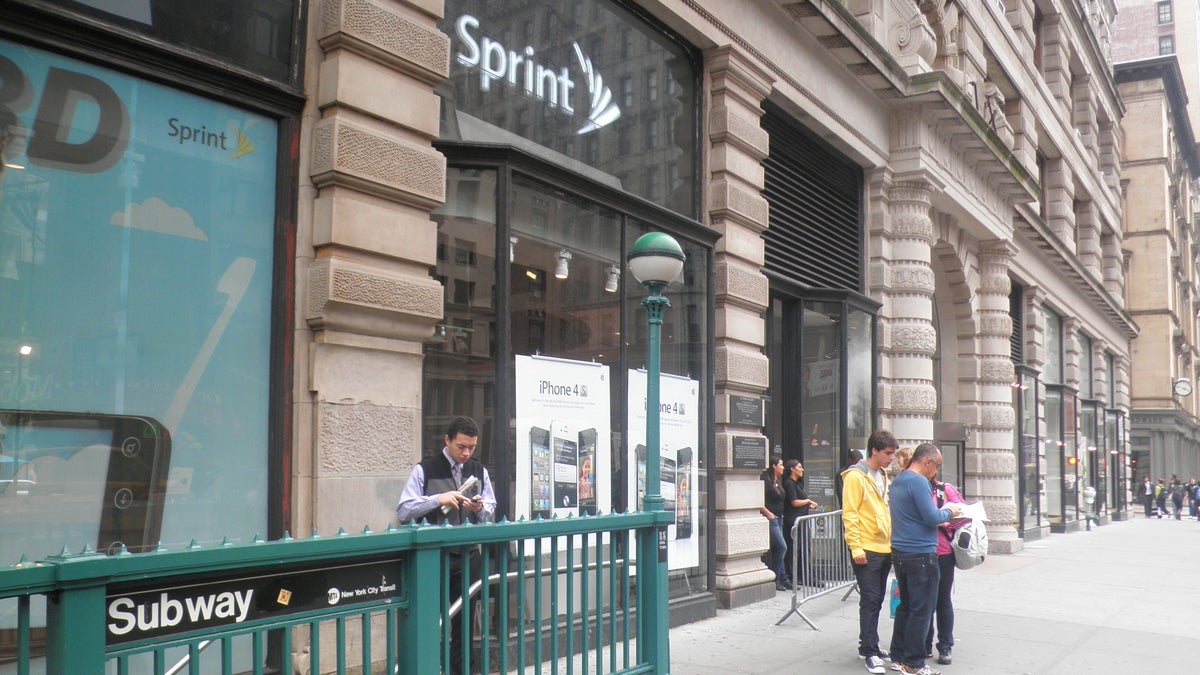How will Sprint's Framily fare against T-Mobile's ETF buyout?
Sprint has its hopes pinned on its friends and family plan as the rest of the wireless carriers pile up on incentives to switch.

In Framily we trust.
At least, that's the takeaway from Sprint after the wireless carrier reported fourth-quarter results, which revealed the company continues to bleed money but is returning to customer growth.
Sprint is hoping to keep that growth going with Framily, a friends and family plan that allows people to sign up together for increased savings. CEO Dan Hesse said he believes the plan will give it an edge against the competition.
The introduction of Framily is just one of a string of incentives and plans offered by the national carriers -- all designed to entice customers to switch to a rival. The moves underscore the shrinking pool of available consumers up for grabs, forcing the carriers to go after each other.
But Framily is particularly important for Sprint because the carrier is more vulnerable than its rivals. T-Mobile's Uncarrier campaign has shaken up the industry and caused both AT&T and Verizon Wireless to shed basic phone customers. But the losses at Sprint are even more dramatic.
On the surface, Sprint added a net 58,000 new contract customers. But if you look at the fine print of the earnings report, the growth largely came from 466,000 tablets added in the period. Stripping out the tablets, Sprint lost 408,000 phone customers.
"When we look at phone subscribers this quarter compared to total postpaid (contract) Sprint platform additions last quarter, it looks like trends are deteriorating," said Jonathan Chaplin, an analyst at New Street Research.
Which is where Framily comes in. The company believes the offer, which targets groups of friends and smaller families, will help it reverse the trend of losses. Right now, Framily is only available at Sprint stores, so distribution is limited. Of the folks who sign up for a Framily plan, 60 percent of them opt to pay a little more to get unlimited data and the ability to upgrade their phones once a year.
But right now, there are a lot of reasons to leave Sprint, and even its executives acknowledge the issues. Sprint is in the middle of a slow and painful network upgrade that will eventually result in the ability to handle multiple bands of spectrum, providing more capacity, higher data speeds, and better call quality.
Before Sprint customers see any improvement, the network quality -- particularly on the voice end -- takes a hit as the upgrades are put in place. It's the "pardon our dust" impact, as Hesse so often puts it. The result has been higher customer turnover and satisfaction dropping.
"That's really tough on me," Hesse said in an interview with CNET.
Sprint's network build-out is coming at a time when a resurgent T-Mobile is crowing about the speed of its LTE network and offering to buy out the contracts of customers on other carriers, essentially giving them a free pass to switch services.
Hesse said that T-Mobile's ETF porting credit is historically rich for the industry, and he acknowledged that it was having an impact. But he added that he believes Framily is different enough to help the company defend against T-Mobile's offer.
"The early signs are really quite good," he said.
Over the long term, Hesse downplayed the impact. He noted that porting credit offers typically have an immediate impact, which gradually dissipates after a while. He added that in some ways, comparing T-Mobile and Sprint's offers was like comparing apples to oranges, noting they were fundamentally different offers.
While Hesse wouldn't provide any details, he said that customer metrics tend to improve once a market finishes its network improvements. He touted Sprint Spark, a more advanced version of LTE that delivers higher speeds in select markets.
In addition, he talked up the national roll out of HD voice by the middle of the year and noted that there are 12 million HD voice-compatible phones already in the market, with an estimated 15 million by the time the service goes nationwide.
"When we turn it on, half our (contract) customers will already be on it," he said. "It's startling clear."
T-Mobile already offers HD voice, while AT&T and Verizon are still looking to roll it out later.
On the higher end, Sprint also faces competition from AT&T and Verizon Wireless, which made their own moves to make it more attractive to switch and offer far broader 4G LTE coverage. Verizon recently unveiled a cheaper plan for low-end and basic phone customers, and its chief financial officer, Fran Shammo, vowed to "respond accordingly" to competitive pressure. AT&T, meanwhile, cut the price of its family data plan.
It's not all doom and gloom for Sprint. The company reported the first year-over-year growth in adjusted earnings before interest, taxes, depreciation, and amortization since Sprint and Nextel merged in 2005. Analysts were impressed that its profit margins and revenue were better than expected. That combined with low expectations have led to Sprint's shares rising by nearly 3 percent to $7.89 today.
Still, Sprint is cautious about the first half, warning that customer turnover would remain high. The company believes things will start to stabilize and turn around in the second half once a bulk of the work is done.
That means roughly five months where Sprint will continue to drift. A lot can happen in that time.

